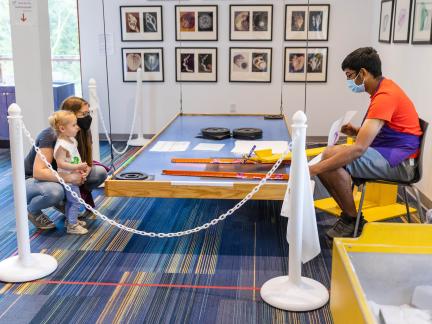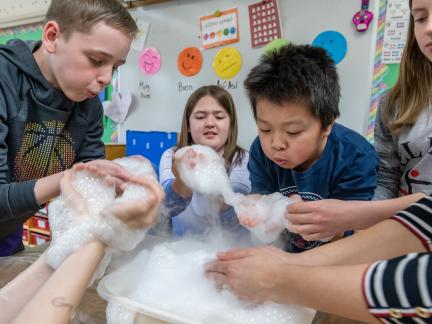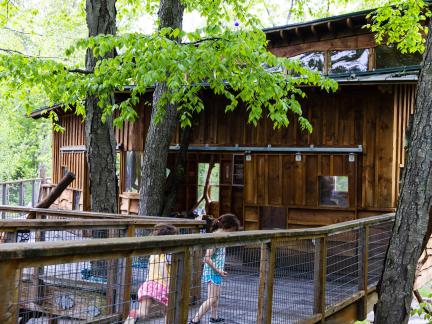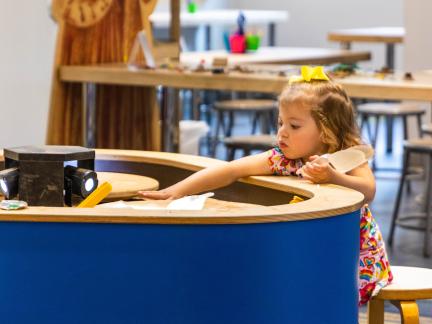The Power in Common Materials and “Home Work”
Empty oatmeal boxes, paper cups, string, wire hangers. Berry baskets, spatulas, and funnels. Bananas, rubber bands, flowers. Toys. Hidden within each of these common objects is a world of science just waiting to be discovered. Science is all around us and can be found in the most seemingly banal household material.
This is the message relayed to students who participate in our Traveling Science Workshops. The students are the scientist and have the skills to practice science using readily accessible, everyday materials. All they need do is look around the house. They don’t need a lofty degree, white coat, wild hair, or a stainless steel lab. They just need some cups and string and a little bit of curiosity to get started on a great adventure.
In our Sound workshop for grades K-5, kids use Dixie cups and string to make what we call a “laughing cup” that demonstrates that sound is vibration. The noise sounds like a squawking, laughing turkey—and the kids join in the laughter and learn! After messing around with these sound makers for a bit, we ask kids to think about whether or not they could make these sound makers again at home. For example we might say, “What happens if you accidentally sit on your laughing cup and crush it? Could you make it again? What if you didn’t have a Dixie cup at home, could you use a different container? What do you imagine a yogurt or oatmeal container might sound like? What if we used a metal can? What if we used a square carton? Will all of these make the same sound as the paper cup or do you think there may be some variation due to size and material?” At this point the kids are right where we want them, thinking hard about what cool container they might test when they get home. This is homework we don’t have to assign, it’s homework that students are self-motivated to complete—and they enjoy themselves and learn in the process!
After 45 to 60 minutes together, curiosity about the subject is high and the questions are flying. We want kids to have a way to follow up on their own questions and use their own curiosity about what they experience to make their own discoveries. We ensure that kids feel empowered to do just that by using familiar, every day materials during the workshop and helping kids identify themselves as capable scientists who practice the skills of inquiry.
Classroom teachers are happy to get in on the act. We provide follow-up resources for teachers and online family activity pages to further guide and support exploration at home for all of our TSW topics, or “home work.” After experimenting with what we call a Big Ben—a bent hanger suspended by two pieces of string that students hold to their ears and bang against a desk, an action that causes a surprisingly deep, melodious sound to travel up the strings to their ears--students are surprised, engaged, and primed for more exploration. One teacher, building on that enthusiasm, gave an assignment to her 5th grade classes to search at home to find other objects that would make cool sounds when suspended and banged. One student returned to school the next day carrying an oven rack with two pieces of string tied to it!
Building real knowledge takes time and repetition. It takes trying and failing and succeeding and failing again, and just playing around with things over and over to see what happens or what doesn’t happen. It takes practice. By working at home with found materials after one of our Traveling Science Workshops, kids can experiment with things in their own way, in an environment that is different from school, often without time constrictions, peer pressure, or expectations to perform for the teacher in the moment. It is a great way for kids to identify themselves as “the scientist” in the room and to explore and learn and recognize that science is all around them, ready to be explored with whatever they might have at hand.







Comments
Add new comment